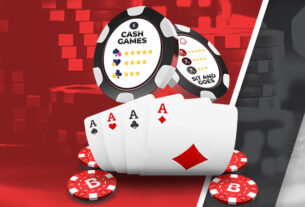Poker is more than just a game of skill and chance—it’s also about playing in a social setting where etiquette and respect for others can make all the difference. Whether you’re playing at a casino, in a home game, or online, knowing and adhering to proper poker etiquette can improve the experience for everyone involved. So, what exactly is poker etiquette, and why is it important? Let’s dive into the key aspects of how to behave at the poker table.
1. Be On Time
Punctuality is a fundamental aspect of poker etiquette, especially in structured games like tournaments. Arriving late not only disrupts the flow of the game but can also affect the dynamic and the strategy of other players. If you’re joining a home game, respect the host’s start time. If you’re playing online, make sure to join the game at the scheduled time and avoid delaying the start of a round.
2. Respect the Dealer
Dealers play an essential role in keeping the game fair, moving things along smoothly, and enforcing the rules. Always show respect to the dealer, whether they’re at a casino or if it’s a friend hosting the game. Don’t argue with them over minor mistakes; instead, address any concerns politely. In addition, tipping dealers for excellent service, especially in casinos, is a thoughtful way to show appreciation.
3. Play at a Comfortable Pace
Poker is a game that requires careful thought, but it’s also important to respect the rhythm of the game. Taking too long to make a decision or “tank” for several minutes can slow things down and frustrate your fellow players. While you should absolutely take time to think through your moves, be mindful of others at the table and avoid excessive delays.
4. Don’t Discuss Your Hand During Play
One of the golden rules of poker etiquette is never to discuss your hand while the game is ongoing, whether you’re playing live or online. Doing so is not only distracting but can also affect the flow of the game. If you’re facing a tough decision, keep your thoughts to yourself. This rule ensures that no player gains an unfair advantage by knowing what someone else has.
5. Avoid “Angle Shooting”
“Angle shooting” refers to borderline unethical behavior designed to exploit a rule or take advantage of an opponent without actually cheating. While some actions may not break the letter of the rules, they might violate the spirit of the game. For example, pretending to act weak to get your opponent to bet more or making confusing gestures with the intent to mislead should be avoided. Always play honestly and be aware of how your actions could be interpreted by others.
6. Don’t Gloat or Trash Talk
Winning a hand or tournament feels great, but it’s important to stay humble. Gloating or taunting other players is poor etiquette and can ruin the fun for everyone. Similarly, trash-talking or making negative comments about other players’ skills can lead to a toxic environment. Remember, poker is a social game, and while competition is part of the fun, creating a positive atmosphere will make the game more enjoyable for all.
7. Protect Your Hand
When you’re in a live poker game, it’s essential to keep your cards visible but protected. Use your hands, chips, or a card protector to prevent anyone from accidentally or intentionally seeing your cards. This also helps ensure that no one can alter or steal your hand while you’re focused on the game.
8. Be Honest About Your Actions
If you make an error or change your mind during the game (such as placing a bet or checking inadvertently), be honest and transparent about it. Most players will respect you for owning up to any mistakes. Similarly, if you realize you’ve violated a rule or made an illegal move, it’s better to address the situation immediately to avoid confusion or conflict.
9. Know When to Fold
A common mistake for beginner players is staying in a hand longer than they should, often due to pride or a sense of needing to “win back” money. If the cards aren’t in your favor, it’s okay to fold. Continuing to play weak hands or chasing losses can harm your game and make you appear inexperienced. Accept that folding is a natural part of poker, and don’t feel pressured to stay in just to stay involved.
10. Practice Good Table Manners
Good table manners are a key part of poker etiquette. This includes keeping your chips and cards neat, avoiding distractions (like using your phone), and keeping your personal space clean. Also, try to refrain from excessive noise or disruptive behavior during the game. Poker is a game of concentration and strategy, and respecting these boundaries creates a more pleasant experience for everyone.
11. Be Mindful of Betting Behavior
When it comes to betting, always try to announce your actions clearly. If you’re raising, say the amount of your bet out loud. If you’re folding, do so in a way that clearly indicates you’re no longer participating in the round. Avoid any ambiguous gestures or quiet actions that could confuse the other players.
12. Avoid Cheating and Collusion
Poker relies on the integrity of its players, and cheating, whether through marked cards or collusion (teaming up with another player), is a serious violation of poker etiquette—and in many cases, illegal. Cheating ruins the integrity of the game and can have serious consequences, including being banned from casinos or poker sites. Always play honestly and ensure that others are doing the same.
Conclusion
Poker is a game that thrives on respect, strategy, and good sportsmanship. Whether you’re an experienced player or just starting out, adhering to proper poker etiquette can create a more enjoyable experience for everyone at the table. Remember, poker is about having fun, challenging yourself, and building camaraderie with fellow players. By practicing good table manners, being honest and respectful, and keeping the spirit of the game alive, you’ll ensure that everyone has a great time—win or lose.





